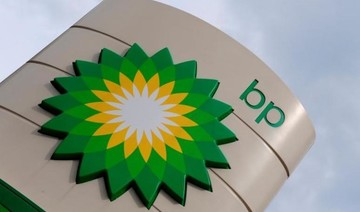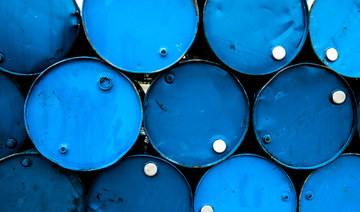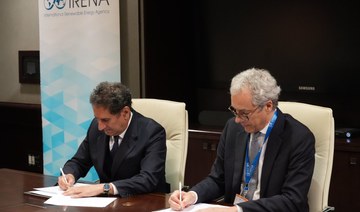BENGALURU: BP has agreed to buy US shale oil and gas assets from global miner BHP Billiton for $10.5 billion, expanding the British oil major’s footprint in oil-rich onshore basins in its biggest deal in nearly 20 years.
The acquisition marks a big turning point for BP since the Deepwater Horizon rig disaster in the Gulf of Mexico in 2010, for which the company is still paying off more than $65 billion in penalties and clean-up costs.
“This is a transformational acquisition for our Lower 48 business, a major step in delivering our upstream strategy and a world-class addition to BP’s distinctive portfolio,” BP chief Executive Bob Dudley said in a statement.
In a further sign of the upturn in its fortunes, BP said it would increase its quarterly dividend for the first time in nearly four years and announced a $6 billion share buyback, to be partly funded by selling some upstream assets.
The sale ends a disastrous seven-year investment by BHP in the shale business, which investors led by US hedge fund Elliott Management have been pressing the company to jettison for the past 18 months. BHP put the business up for sale last August.
Investors and analysts said the sale price was better than expected and were pleased that BHP planned to return the proceeds to shareholders.
“It was the wrong environment to have bought the assets when they did but this is the right market to have sold them in,” said Craig Evans, co-portfolio manager of the Tribeca Global Natural Resources Fund.
Analysts said they had assumed BHP would get between $8 billion and $10 billion in cash for the assets.
BHP first acquired shale assets in 2011 for more than $20 billion with the takeover of Petrohawk Energy and shale gas interests from Chesapeake Energy Corp, but suffered as gas prices collapsed, forcing it to book massive writedowns.
The world’s biggest miner said it would record a further one-off shale charge of about $2.8 billion post-tax in its 2018 financial year results.
The deal, BP’s biggest since it bought oil company Atlantic Richfield Co. in 1999, will increase its US onshore oil and gas resources by 57 percent.
BP will acquire BHP’s unit which holds the Eagle Ford, Haynesville and Permian assets for $10.5 billion, giving it “some of the best acreage in some of the best basins in the onshore US,” the company said.
It beat rivals including Royal Dutch Shell and Chevron Corp. for the assets, which have combined production of 190,000 barrels of oil equivalent per day (boe/d) and 4.6 billion barrels of oil equivalent resources.
BP said the transaction would boost its earnings and cash flow per share and it would still be able to maintain its gearing within a 20-30 percent range.
The company also said it would increase its quarterly dividend by 2.5 percent to 10.25 cents a share, the first rise in 15 quarters.
Meanwhile, a unit of Merit Energy Company will buy BHP Billiton Petroleum (Arkansas) Inc. and the Fayetteville assets, for $0.3 billion.
Tribeca’s Evans welcomed the clean exit for cash, rather than asset swaps which BHP had flagged as a possibility.
“It leaves the company good scope to focus on their far better offshore oil business,” he said.
BHP Chief Executive Andrew Mackenzie said the company had delivered on its promise to get value for its shale assets, while the sale was consistent with a long-term plan to simplify and strengthen its portfolio.
BHP shares rose 2.3 percent after the announcement, outperforming the broader market and rival Rio Tinto.
BP said it would pay the $10.5 billion in instalments over six months from the date of completion, with $5.25 billion of the consideration to be raised through the sale of new shares.
Elliott had no immediate comment on the sale announcement.
BP pays $10.5 billion for BHP shale assets to beef up US business
BP pays $10.5 billion for BHP shale assets to beef up US business

Oil Updates – prices stabilize, Middle East tensions remain in focus

NEW DELHI: Oil prices edged higher on Tuesday, after falling in the previous session, as investors continued to assess the risk from geopolitical concerns in the Middle East, according to Reuters.
Global benchmark Brent crude oil futures traded 18 cents higher at $87.18 a barrel by 9:34 a.m. Saudi time, and US West Texas Intermediate crude futures also gained 16 cents to $82.06 a barrel.
Both benchmarks fell 29 cents in the previous session on signs that a recent escalation of tensions between Israel and Iran had little near-term impact on oil supplies from the region.
“The unwinding of geo-political risk premium has dented crude oil prices recently as supply was not disrupted meaningfully,” said Sugandha Sachdeva, founder of Delhi-based research firm SS WealthStreet.
But the evolving geopolitical landscape remains critical in steering crude oil prices, she said.
“While there are no indications of an imminent full-scale war between the countries involved, any escalation in tensions could quickly reverse the current trend,” Sachdeva added.
ANZ analysts echoed the sentiment and highlighted US approval of new sanctions on Iran’s oil sector that broaden current sanctions to include foreign ports, vessels and refineries that knowingly process or ship Iranian crude.
Also, EU foreign ministers agreed in principle on Monday to expand sanctions on Iran after Tehran’s missile and drone attack on Israel, the bloc’s foreign policy chief Josep Borrell said.
“The geopolitical backdrop is still very fraught with so many risks at the moment, so clearly we’re going to see a lot of volatility until there’s a lot more clarity around it,” the ANZ analysts said in a podcast.
Israeli troops fought their way back into an eastern section of Khan Younis in a surprise raid, residents said on Monday, sending people who had returned to abandoned homes in the ruins of the southern Gaza Strip’s main city fleeing once more.
Investors are waiting for the release of the US gross domestic product figures and the March personal consumption expenditure data — the Fed’s preferred inflation gauge — later this week to assess the trajectory of monetary policy.
US crude oil inventories are expected to have increased last week while refined product stockpiles likely fell, according to a preliminary Reuters poll of analysts.
“Sticky US inflation figures, hawkish statements from key Fed officials, and rising US inventories are all acting as constraints on crude oil price growth,” Sachdeva said.
Pakistan hopes to get new IMF loan by early July, says finance minister
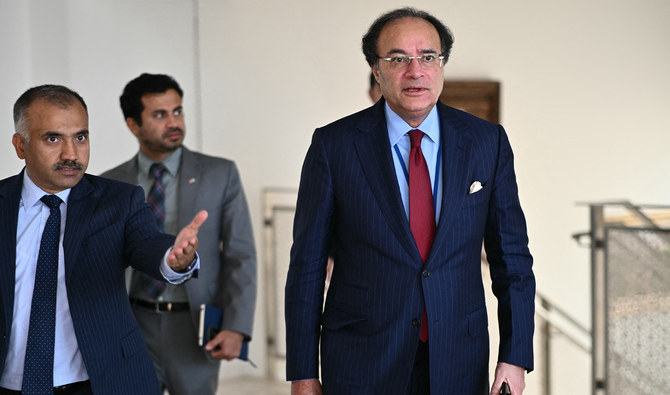
- Pakistan’s current $3 billion financial arrangement with IMF expires in late April
- Islamabad is seeking “bigger,” long-term loan to ensure macroeconomic stability
Pakistan is hoping to reach a staff-level agreement with the International Monetary Fund by June or early July, its finance minister said on Tuesday.
The country’s current $3 billion arrangement with the fund runs out in late-April, which it secured last summer to avert a sovereign default.
Islamabad is seeking a long-term bigger loan to help bring permanence to macroeconomic stability as well as an umbrella under which the country can execute structural reforms.
“We are still hoping that we get a staff-level agreement by June or early July,” Finance Minister Muhammad Aurangzeb told a conference in Islamabad.
He returned from Washington last week after leading a team to attend the IMF and World Bank’s spring meetings. “We had very good discussions in Washington,” he said.
He said he did not know at this stage the volume and tenure of the longer program.
Riyadh prepares to host special meeting of World Economic Forum

- The aim of the gathering is to find solutions to global challenges relating to humanitarian issues, the climate and the economy
RIYADH: Final preparations are taking place this week in the Saudi capital, Riyadh, for a special meeting of the World Economic Forum in the city on April 28 and 29.
Heads of state and senior executives from the public and private sectors are expected to be among the participants, who will discuss a range of global economic issues and developments under the theme “Global Collaboration, Growth and Energy for Development.”
The aim of the meeting is to find solutions to a host of global challenges relating to humanitarian issues, the climate and the economy. On the sidelines of the main event, the Kingdom will host exhibitions and other events to highlight the latest developments and trends in areas such as sustainability, innovation and culture.
The selection of Riyadh as host of the special meeting reflects the extensive partnership between Saudi Arabia and the WEF, officials said.
It builds upon the Kingdom’s active participation and contributions to the WEF’s Annual Meetings in Davos.
The agenda is designed to rekindle the spirit of cooperation and collaboration with various panel discussions, workshops, and networking opportunities. It represents a significant gathering of global leaders and experts dedicated to forging a path toward a more resilient, sustainable, and equitable world.
ACWA Power inks deal to drive renewable energy development in Azerbaijan
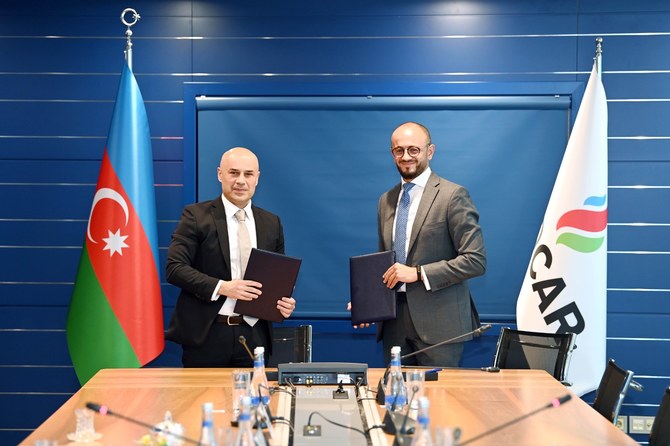
RIYADH: Saudi energy giant ACWA Power is signing a new agreement to accelerate the development of renewable projects in Azerbaijan.
The private water desalination company, known for its extensive green hydrogen storage capacity, announced it has now finalized an agreement with SOCAR, the State Oil Company of the Azerbaijan Republic.
This development follows an initial cooperation understanding signed in February 2023.
This deal focuses on the joint evaluation of the “Low-Carbon/Green Fertilizer” project, in which the two bodies will collaborate on assessing the production of green hydrogen to support the decarbonization of SOCAR downstream assets.
Marco Arcelli, CEO of ACWA Power, said in a statement, “I am proud to announce our collaboration with SOCAR to ignite a new era of renewable energy development in Azerbaijan. With our shared vision and commitment to sustainability, this partnership will not only drive innovation but also pave the way for a cleaner and brighter future for this country.”
The primary directive of the agreement will be to enhance SOCAR’s carbamide fertilizer facility, striving toward more value-added low-carbon products.
As part of the project, SOCAR and ACWA Power will conduct feasibility studies to assess the potential production and sale of green fertilizers, aligning with Azerbaijan’s vision of achieving a clean environment.
ACWA Power will take a role in driving the project’s renewable energy and green hydrogen production aspects, bringing their expertise to bear on this initiative.
For his part, Anar Mammadov, vice president of SOCAR, said, “Azerbaijan is committed to building a sustainable future, and our partnership with ACWA Power underscores our shared dedication to driving renewable energy development in the region. Together, we will work towards realizing our vision of a cleaner, greener Azerbaijan.”
He added: “The cooperation with ACWA Power represents a significant step forward in Azerbaijan’s transition towards a low-carbon economy and underscores the commitment of both organizations to sustainable development practices.”
Preceding this announcement, the two nations posed their intent to collaborate on renewables as Saudi Arabia’s Minister of Energy Prince Abdulaziz bin Salman met with Azerbaijan’s Minister of Environment and Natural Resources Mukhtar Babayev in March.
During the meeting, the counterparts discussed opportunities for work and cooperation between their two countries in the field of climate change.
They also talked about joint efforts to achieve the goals of the UN Framework Convention on Climate Change and the Paris Agreement, the Kingdom’s ministry said in a statement at the time.
Closing Bell: TASI edges down to close at 12,509 points
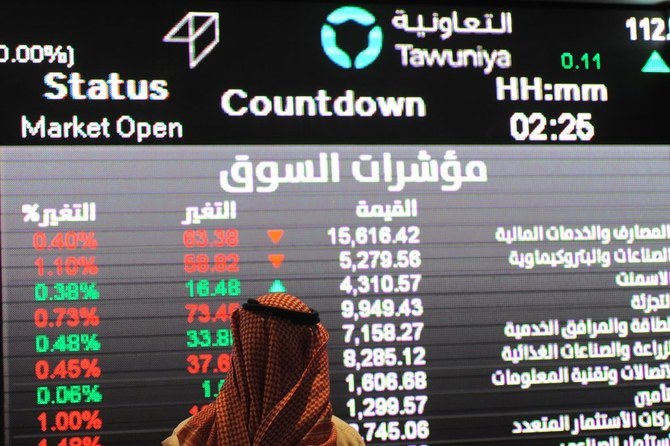
RIYADH: Saudi Arabia’s Tadawul All Share Index closed at 12,508.93 points on Monday, losing 9.29 points or 0.07 percent.
The parallel market, Nomu, also shed 343.96 points or 1.28 percent to end the day’s trading at 26,596.22.
Concurrently, the MSCI Tadawul 30 Index fell 3.95 points or 0.25 percent to finish at 1,567.16.
The main index posted a trading value of SR8.8 billion ($2.3 billion), with 74 stocks advancing and 148 declining. On the other hand, Nomu reported a trade volume of SR37.7 million.
Al-Rajhi Company for Cooperative Insurance was the top performer on TASI as its share price surged 9.93 percent to SR126.20. LIVA Insurance Co. followed next with its share price jumping 9.92 percent to close at SR21.50.
Gulf General Cooperative Insurance Co. also performed well, climbing 9.16 percent to SR16.44. Raydan Food Co. and Fitaihi Holding Group increased 8.14 and 8.11 percent to SR28.55 and SR4.40, respectively.
Conversely, Saudi Cable Co. recorded the most significant dip, declining 4.94 percent to SR75.
Alkhaleej Training and Education Co. and Ash-Sharqiyah Development Co. also experienced setbacks, with their shares dropping to SR31.50 and SR23.40, reflecting declines of 4.83 and 4.10 percent, respectively.
Nomu’s top performer was Dar Almarkabah for Renting Cars Co., which saw a 9.73 percent jump to SR44. Mayar Holding Co. and Alqemam for Computer Systems Co. also recorded notable gains, with their shares closing at SR4.27 and SR89.80, marking an increase of 7.02 and 5.03 percent, respectively. Arabian International Healthcare Holding Co. and Foods Gate Trading Co. also fared well.
On Nomu, Raoom Trading Co. was the worst performer, declining by 7.28 percent to SR135. Other underperformers included Natural Gas Distribution Co. and National Environmental Recycling Co., whose share prices dropped 5.58 percent and 5.23 percent to SR42.30 and SR12.32, respectively.
Watani Iron Steel Co. and Future Care Trading Co. declined during the day to settle at SR2.81 and SR8.70, respectively.



